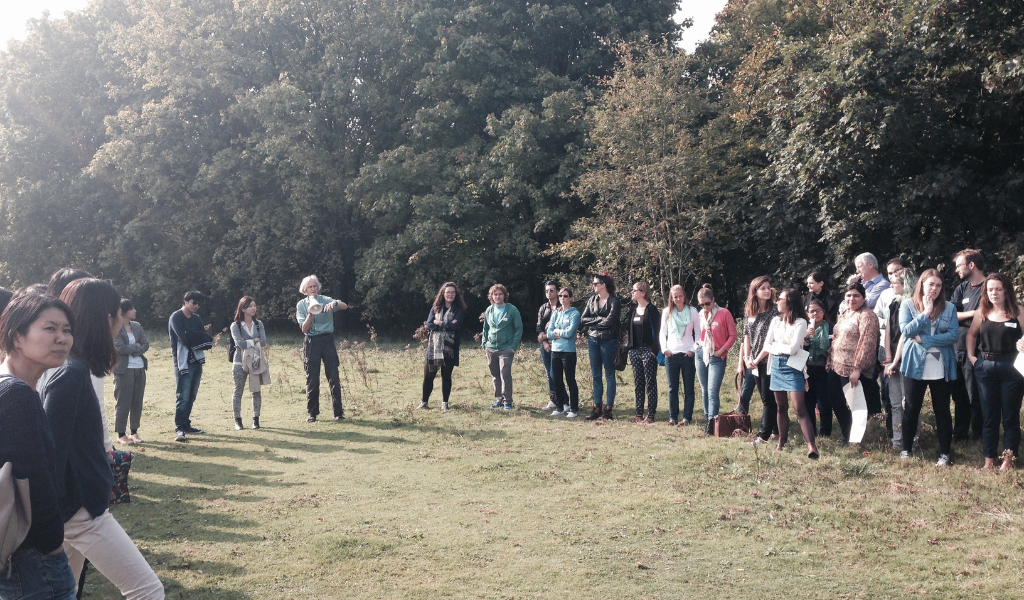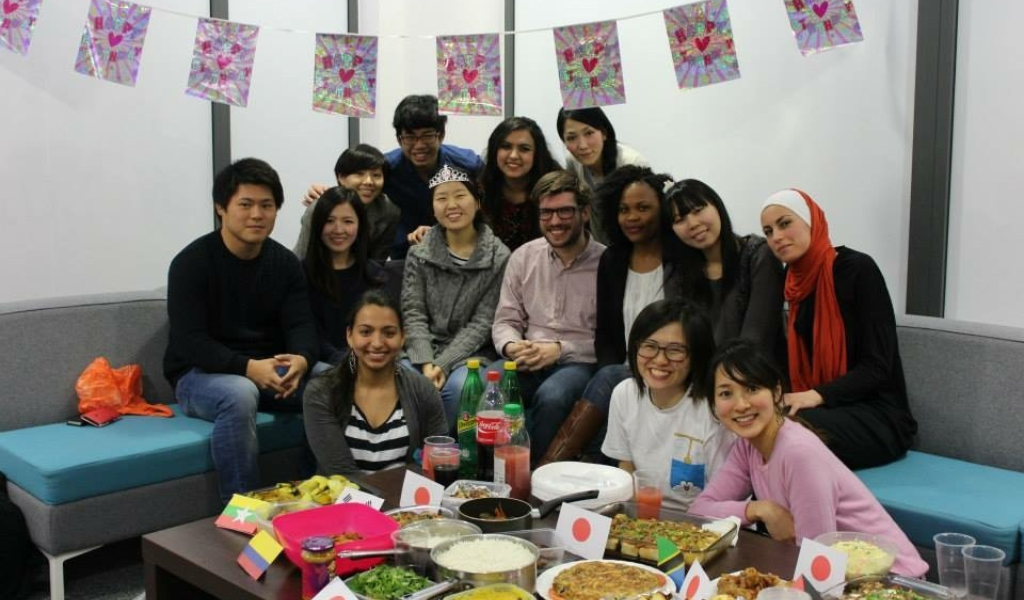Hitomi Fujimoto, MA Poverty & Development, Class of 2014-15, currently works at the Global Survivors Fund as an Advocacy and Policy Officer for Asia. In this blog post, Hitomi talks about why she decided to study at IDS, how it has impacted on her career path, and advice for prospective students on how to make the most of their time at IDS.
Interviewer: What were you doing before coming to IDS?
Hitomi: Before I came to IDS to do my Master’s in Poverty & Development, I worked for a corporation in Japan, where I was doing project management for Official Development Assistance (ODA) projects, such as infrastructure development in various countries. I enjoyed the work because it contributed to economic development, improvement of infrastructures, and job creation in the countries we worked in.
Interviewer: What made you decide to pursue a Master’s in Poverty & Development?
Hitomi: Although I found my work interesting, about four years into my first job in the private sector, I realised that I wanted to do something more closely aligned with my passion – that is to work with communities and support populations that are less privileged or deprived of basic human rights. After considering a few possible paths, I decided that pursuing a master’s degree to deepen my understanding of development was what I needed at that point. Once I made the decision, I applied to IDS as soon as possible.
Interviewer: How did you choose IDS?
Hitomi: I chose IDS because of its outstanding reputation in the field of international development. Also, to be completely honest, the fact that Brighton is a seaside town and known as ‘Sunny Brighton’ influenced my decision – I wanted to enjoy my MA experience! It turned out to be the best decision I made.
Interviewer: What have you gone on to do since your master’s degree?
Hitomi: Right after I completed my MA, I returned to the company because my supportive boss had kept my position while I studied at IDS. However, not long after, I took the opportunity to transition into different roles – firstly at UN Women, and then on to the Ministry of Foreign Affairs of Japan, UNICEF, and finally the Global Survivors Fund, where I currently work. Over time, I have been building my expertise around child protection, gender, and human rights. It hasn’t been an easy path, but by taking it one step at a time, I’ve been fortunate enough to find myself doing what I’m truly passionate about.
Interviewer: In what ways has your master’s helped your career progression?
Hitomi: Achieving my master’s degree has helped my career progression in every way. Practically, all the jobs I got after my first corporate job required a master’s degree, so my career progression wouldn’t have been possible without it.
More importantly, doing my master’s at IDS shaped my views on international development in many ways, which I deeply appreciate, and which continues to influence my career choices in various ways. In particular, learning about participatory development was the most important thing for me, and it’s what makes me so grateful that I chose IDS.

For example, I now work for an organisation whose core value is ‘co-creation’ (with the people we aim to serve) – a concept rooted in participatory approaches that resonated with me deeply during my time at IDS. ‘Whose reality counts?’ is like my mantra since I studied at IDS.
In my current job, there are various ways to achieve meaningful participation of people we aim to support, from developing advocacy tools together to co-designing and co-implementing projects on the ground. I share one simple example that anyone could do: when you organise a conference or an event to which the people concerned will participate, don’t make the agenda just among the event organisers – ask the people what they want to hear, discuss, and achieve in the event and co-create the agenda. It can be as simple as this, and the key is to involve them from the beginning to the end – not just when you need their input.
I believe participatory approaches are imperative in development work. It’s not easy, as all of us tend to prioritise our own knowledge and standards over those of others, and most development work operates within certain power dynamics where we, development practitioners, almost always hold greater power, which we should be fully aware of and ultimately redress. I remain committed to challenging these power dynamics and applying what I learnt at IDS in my work as I move forward in my career.
Interviewer: What advice would you give to someone who is considering studying at IDS?
Hitomi: I could only say, go for it if you have the opportunity. For me, it was one of the most inspiring, exciting, challenging and rewarding experiences I’ve ever had. However, one year at IDS goes by unbelievably fast, so be ready to fully engage and absorb every bit of it while you’re there.
For example, although the course programme was more than enough to keep me busy everyday (those readings every night!), there were always so many additional interesting lectures, seminars, and events happening at IDS and led by experts in the field. The University of Sussex, where IDS is located, also has a number of events, clubs and lectures that students can also take part in.
I encourage anyone to try to manage their time and take advantage of this environment. Also, the MA cohort is brilliant – students come from all different parts of the world with diverse backgrounds, expertise, and experiences, yet we share similar visions and passions. I have learned so much from my friends at IDS and I continue to do so today. I’m very grateful to have shared time with people at IDS and to still be in touch with them. So, do make time to engage with your cohort as much as possible!

Interviewer: Do you have any advice for someone who would like a career in international development, or who is already in the sector and wanting to further their career?
Hitomi: I don’t have any practical advice, but one thing I would say is do not forget why you wanted a career in international development in the first place. I think many of us begin this journey with a passion and desire to do good for society, but as we progress in our careers, it’s easy to become more focused on climbing up the career ladder, better positions and conditions, and other factors, rather than what we wanted to do in this career. In my opinion, having a career in international development is a privilege, and it’s important to always reflect on what we want to use that privilege for.


